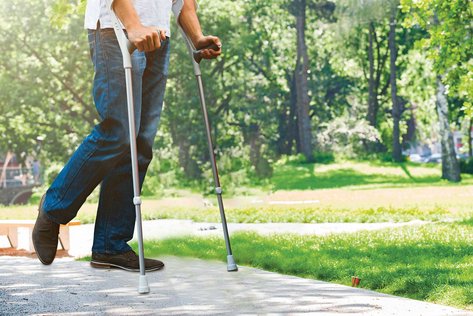 TippaPatt
TippaPatt
Accident Insurance
ed* Nr. 02/2019 – Chapter 4
a) Finland
Although the Finnish statutory accident insurance system is governed by public law, a distinctive feature of the system is that it is provided by private insurance companies. The choice of insurance company is left to the employer.
All employees in Finland are insured against accidents at work and occupational diseases from their first day of employment. Persons who are
employed for more than twelve working days within a calendar year and receive an annual income of at least €1200 must be insured.
Persons subject to compulsory accident insurance include not only employees but also farmers and recipients of scholarships. There are special provisions for students, apprentices and trainees. Government employees are a further exception because the Ministry of Finance is responsible for funding these benefits.
Self-employed persons have the option
of taking out voluntary insurance in Finland. In principle, however, this is only possible if the self-employed person is also covered by the old-age
pension system (compulsory or voluntary).
Contributions for accident insurance are borne in full by the employer. The amount of the contribution is based on the salary of the person to be insured and the risk of an accident at work.
Accident insurance covers the costs
of any necessary medical treatment
and compensation for loss of income
in the form of daily allowances, disability pensions or rehabilitation allowances following an occupational illness or an accident at work or on the way to and from work. The daily allowance for the first four weeks is equal to the salary during the period
of sick leave. The amount is then determined on the basis of annual income. If the employee is still unable to work one year after the accident, he or she receives a full or partial disability pension. Daily allowances, disability pensions and rehabilitation allowances count as taxable income.
In the event of death, both the widow/widower and the children receive a survivor’s pension. This is regarded as taxable income. A funeral benefit is also paid.
Patients have freedom of choice (in both the public and private sectors). However, the insurer is entitled to determine the hospital where treatment is carried out and a one-off treatment with a doctor.
Finish legislation lays down the requirements that employers must implement with regard to occupational safety and health.

b) Croatia
Croatian accident insurance is characterised by the fact that it does not exist – at least not as an independent branch
of social insurance. In the event of a work accident or occupational disease, a person is covered by the statutory health and pension insurance systems. Pension insurance covers long-term benefits such as reduced earning capacity pensions, while health insurance covers short-term benefits such as treatment costs and benefits in kind. Work accidents,
commuting accidents and occupational diseases are all covered.
Insurance is compulsory for employees and the self-employed. Under special circumstances, students doing an internship, members of the voluntary fire brigade and natural disaster responders are also covered.
The system is funded by both contributions and taxes. The portion to be paid into the pension insurance system is divided into income-related contributions and taxes for the first pillar and employee contributions plus yields for the second pillar. The portion paid to health insurance consists of employer contributions and taxes.
The cause of the health impairment can determine the scope of benefits and the prerequisites for benefits. At first, the catalogue of benefits provided by health and pension insurance also apply after an accident at work or in the event of an occupational disease. Health insurance covers all costs for medical treatment and rehabilitation as well as the payment of injury benefits. The costs for occupational rehabilitation are initially covered by pension insurance. Vocational retraining, on the other hand, is financed by unemployment insurance. Following an accident, reduced earning capacity pensions are calculated according to the principles of pension insurance, taking into account the years of employment. However, entitlement is not subject to the usual insurance requirements. In addition, there are disability benefits in the event of work-related damage to health.
The Croatian Institute for Occupational Safety and Health Protection is responsible for integrating and promoting occupational activities into occupational safety and health in order to improve working conditions and prevent workplace accidents and occupational illnesses.

c) A look at Germany: difficult to compare systems
The accident insurance systems could hardly be more different: Germany with its public system, Finland with its mandatory but privately administered system, and finally Croatia with almost a complete absence of an independent institution. Although they have different organisational structures, all three countries want to offer their workers the best possible health and safety at work and the best possible care. The German statutory accident insurance system is the only one of the three countries to have an independent pillar in the overall structure of the social insurance system. In contrast to the Finnish accident insurance system, German accident insurance institutions are public entities with statutory powers. Whereas Croatia delegates responsibility to the pension and health insurance systems, Finland engages private insurers, which compete with each other.
Differences can also be seen in the group of persons subject to compulsory insurance. Only in Croatia is it compulsory for self-employed persons to take out insurance. In comparison, Finland and Germany with their ‘illusory’ accident insurance systems rely to a large extent on voluntary insurance for the self-employed, albeit in differing ways.
All three systems provide health, rehabilitation and cash benefits in the event of reduced earning capacity, as well as survivors’ benefits. From an international perspective, Germany’s statutory accident insurance serves as a very important role model. Intensive work in prevention and public relations raises awareness of the subject. In the Finnish system, employers are required to comply with certain occupational health and safety regulations and to take preventive measures. However, each insurer also has the right to decide how this is to be done.
Croatia, a comparatively young social security system, requires employers to ensure occupational safety and health. The need for public relations work and campaigns has been acknowledged and is on the rise.
The different systems can learn from one another. For example, Germany could do more to ensure that self-employed persons are insured, whereas the German principles of solidarity and ‘all appropriate means’ could find acceptance in Finland and Croatia, at least among potential insurance beneficiaries.
A more detailed description of the Finish and Croatian systems can be found in the background document.

